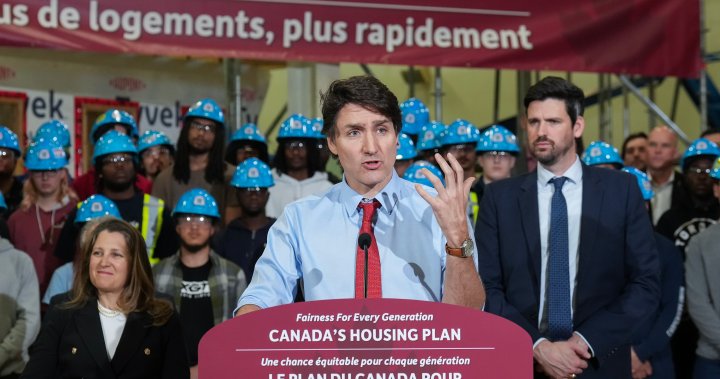The Liberal government in Canada is preparing to table its 2024 federal budget amid a slowing economy and challenges in the polls. The budget is expected to focus on measures to address the rising cost of living for Canadians, but there is little room for significant spending increases. The government has already announced over $37 billion in new spending and loans, with a focus on the housing market, a national lunch program, expanded child-care access, defence spending, artificial intelligence, and youth mental health. Finance Minister Chrystia Freeland has pledged to keep the federal deficit stable, but the government faces headwinds as the economy struggles under higher interest rates and lower revenues.
Kevin Page, Canada’s former parliamentary budget officer, emphasizes the challenge facing the Liberals in trying to balance the budget while meeting the needs of Canadians. The government is limited in its fiscal room to maneuver, and there are warnings that straying from fiscal anchors could have negative consequences for Canadians. Maintaining fiscal targets instills confidence in voters and financial markets, and there is a risk of a credit rating downgrade if the government deviates from its targets. Increasing revenues through taxes is one tactic to address economic challenges, but Finance Minister Freeland has ruled out new taxes on the middle class in the 2024 budget.
Despite the economic challenges, the federal government has some spending room due to stronger-than-expected GDP growth in the first quarter of the year. However, it is unlikely that any new big-ticket items will be unveiled in the upcoming budget. Ipsos polling shows that Canadians are most concerned about financial relief from the rising cost of living, followed by health-care investments and a reduction in personal taxes. Page believes there is little room for relief efforts in the 2024 budget if the government wants to maintain the deficit, and any measures introduced are likely to be small and targeted.
The upcoming budget is expected to be thin, with major items possibly reserved for a pre-election budget next year. The Liberals are facing a tough political and economic year, with polling showing the Conservatives ahead and the NDP close behind. However, some economists believe that by 2025, the economy will be starting to recover, which could boost the Liberals’ prospects in the next election. Rising revenues may allow the government to deliver a budget in 2025 that restores voter confidence and improves their electoral fortunes. The government is aware of the challenges it faces and is hopeful that the situation will improve by 2025.
Overall, the 2024 federal budget in Canada is expected to focus on addressing the rising cost of living for Canadians while maintaining fiscal stability. The government faces challenges in balancing the budget amid a slowing economy and pressures to provide relief to vulnerable citizens. While some measures have already been announced, it is unlikely that any major new spending initiatives will be unveiled in the upcoming budget. The Liberals are also facing tough competition in the polls and are looking ahead to potential economic recovery in 2025 to boost their electoral prospects.


